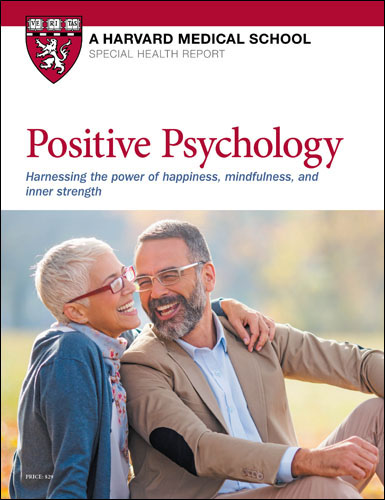Grandparenting: Anticipating March 11

March 11th, 2020 — or was it March 12th, or a few days before or beyond that? Each of us has a date and time etched in our minds when we knew that the COVID-19 pandemic was upon us. Now, the anniversary of that date is fast approaching. What, if anything, do we do to mark it? And how do we convey our thoughts and feelings about this milestone to our grandchildren?
Anyone who has reached grandparenthood has collected anniversaries along the way. There are anniversaries of joyful occasions, and ones that serve as painful reminders of loss. There are the personal anniversaries — the births and deaths of loved ones — and public ones, including 9/11, the moon landing, and (for those of us in our mid-60s and older) the deaths of JFK, RFK, and MLK. For many of us, the upcoming anniversary of the pandemic has elements of loss and triumph that feel both deeply personal and assuredly communal.
How has the pandemic affected your relationship as a grandparent?
Many grandparents have been unable to see their grandchildren up close and personal. Others have been more fortunate, spending time with grandchildren from the start, but even so this time has been punctuated by COVID fear and COVID scares. No one has been without challenges. Nonetheless, many grandparents find themselves looking back not only on loss, stress, and frustration, but on creativity, resourcefulness, discovery. Who would have imagined last March 11th — the very day the World Health Organization recognized the pandemic — that we’d be having car parade birthday parties, Thanksgiving dinner in our garages, and playing board games and more over Zoom?
Why — and how — you might like to mark this anniversary with your grandchildren
I’ve been thinking a lot about why and how grandparents might want to mark March 11th with their grandchildren. Marking this time with our grandchildren can help them make sense of what they have been through. Years from now when they look back on the pandemic, they may cherish memories of the ways in which their grandparents were their fellow travelers.
Ask simple questions to help capture these thoughts. What disappointed? What felt sad? Were there unexpected gifts and moments of joy? Was there anything you really wished you could do, but couldn’t — and anything you successfully did, though perhaps differently than in the Before Times? As we approach the anniversary of the day when so much changed for all of us, consider these questions and additional ideas to help you reflect back on this year with your grandchildren.
Young children, ages 3 to 7
Young children may not grasp the extent of loss that the pandemic has brought, nor what it means to create rituals. But they do understand birthdays and holidays. It may be best to keep it light, approaching March 11th not from a perspective of loss and pain, but using it as a time to celebrate what they — and you — have accomplished. They may have learned to wear masks, study online, and live with the loss of activities they really enjoy and value. Something as simple as a cake with a mask made of frosting, or a "pandemic birthday" dinner in which you have pizza or another favorite food delivered, can communicate to young children that this strange time had a beginning and will — at some point — have an end.
Older kids, ages 7 to 12
Your elementary and middle school grandchildren are old enough to remember March 11, 2020, and the changes that came to their lives in the days, weeks, and months that followed. They can recall the sense that many adults had in the beginning — that the disruptions in our lives would last a few months, and then we would return to normal. Instead, a new normal of mask wearing and more social distancing unfolded. These children bore witness to these changes and participated in them. For this age group, March 11th has real significance: life as they knew it changed. Depending on how creative they — and you — are, you may want to engage them in making a collage of the year. Assuming you are not able to do this together in person, the very act of creating a collage via FaceTime or Zoom will help make this project a fitting memorial to the year.
Teens
Teenagers get it. The pandemic has upended their lives in so many ways. Touchstones of adolescence have been dramatically altered or temporarily put on hold: proms, college tours, graduations. School plays and concerts have been pushed to the side. Religious observances and celebrations, such as bar and bat mitzvahs, have moved to Zoom. For many, classroom learning has been interrupted at a time when they were most fully engaged. They have surely experienced loss during the pandemic. Creating a ceremony or ritual with your teen grandchildren may help them make a place for the pandemic in the history of their lives. In so doing, it may offer reassurance that this time will pass. Let them take the lead on what this ritual or ceremony will look like. Perhaps you can assist them by sharing your memories of some of the complex times you lived through, including the Vietnam war and the aftermath of 9/11.
As March 11, 2021 approaches, the pandemic is far from over. However, vaccines offer all of us hope that life will look very different by March 11, 2022. This knowledge holds promise and an opportunity to approach the anniversary of the pandemic with curiosity and creativity, seeing it not only as a painful reminder of all that we’ve lost, but also as a time of resourcefulness and resilience.
About the Author

Ellen S. Glazer, LICSW, Guest Contributor
Disclaimer:
As a service to our readers, Harvard Health Publishing provides access to our library of archived content. Please note the date of last review or update on all articles.
No content on this site, regardless of date, should ever be used as a substitute for direct medical advice from your doctor or other qualified clinician.













